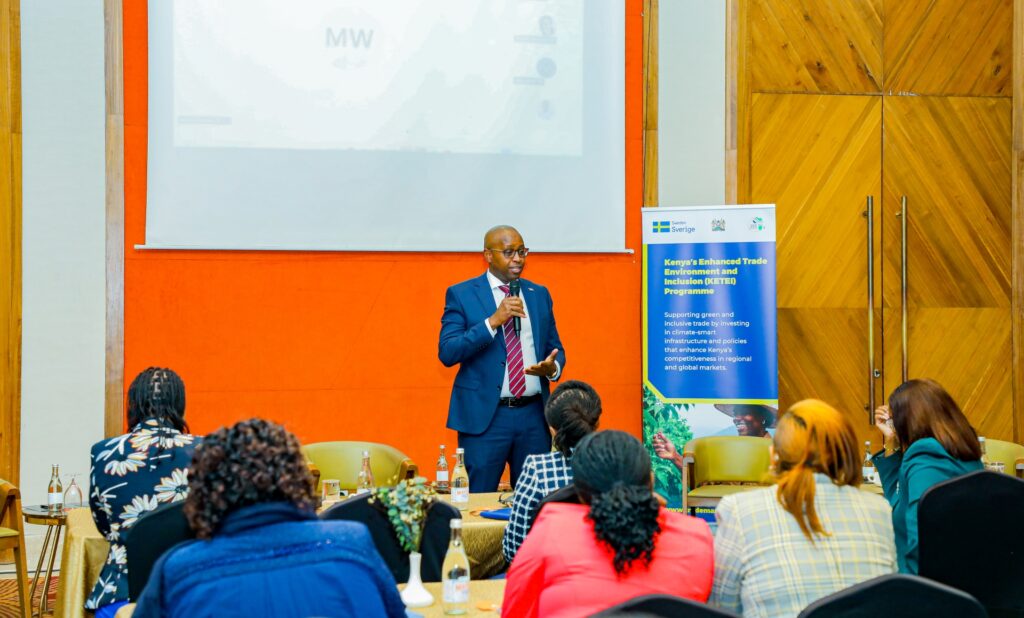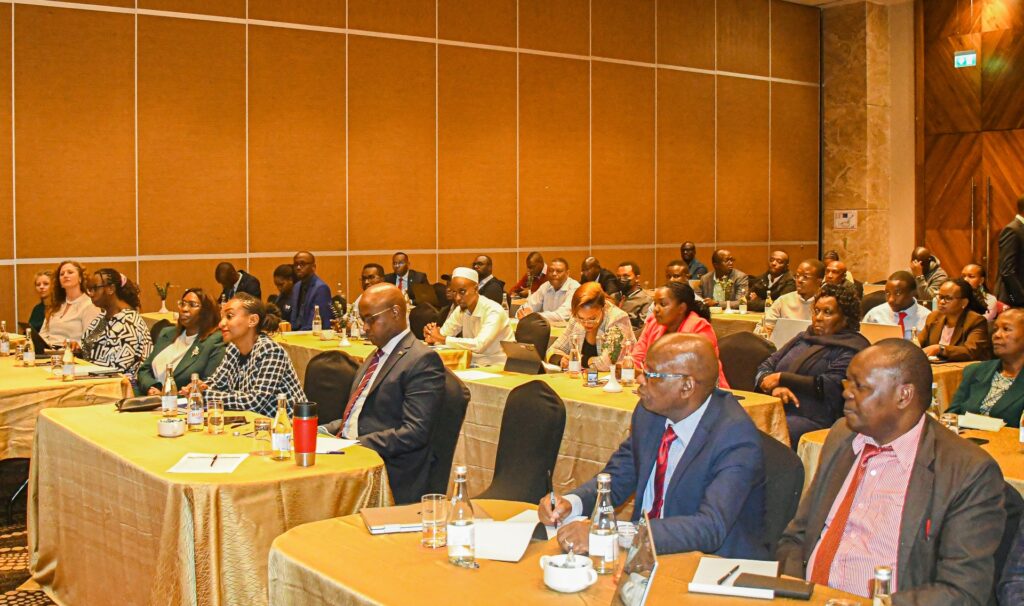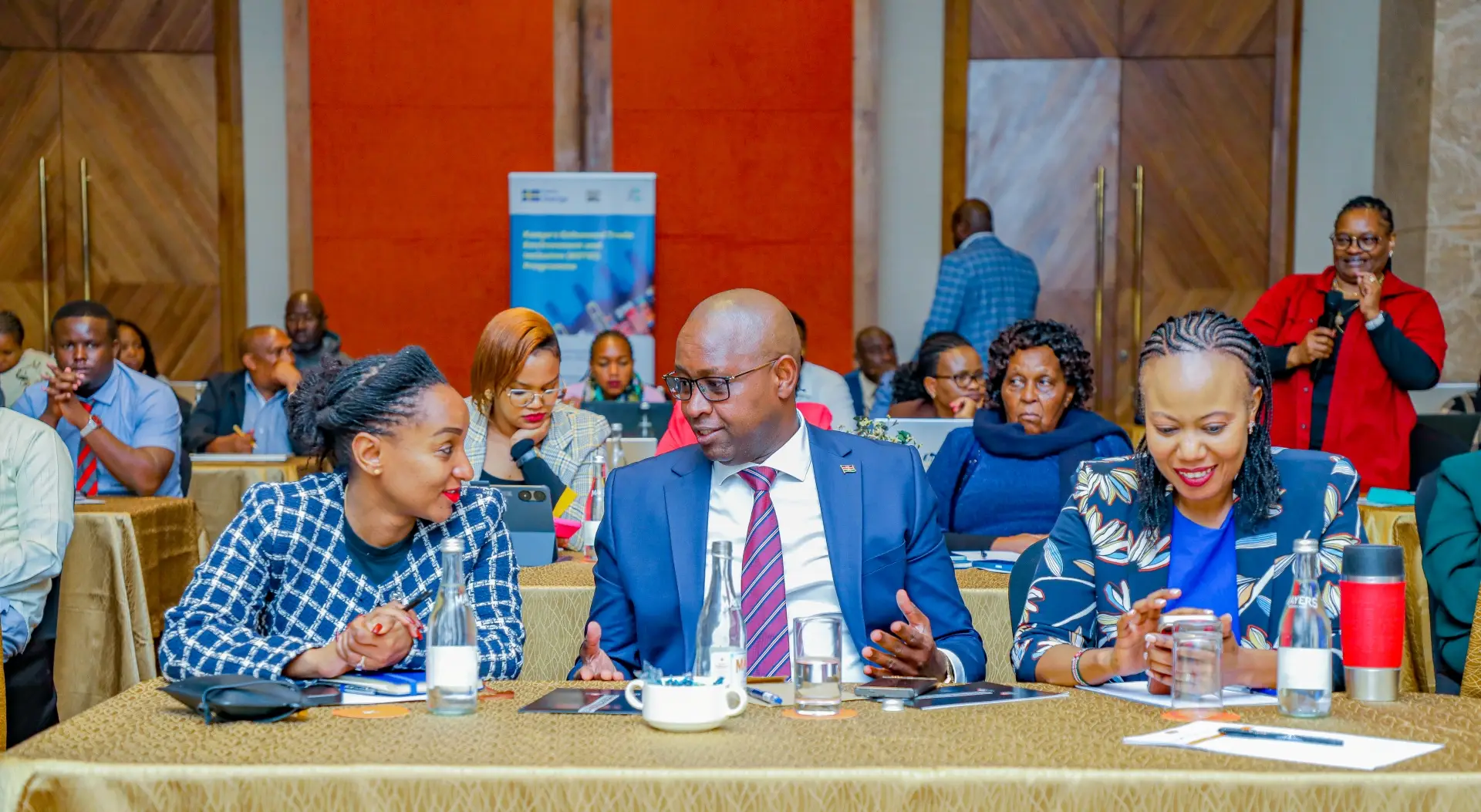Across Kenya’s coffee highlands, new patterns are emerging, led by both the producers and the Government of Kenya. Farmers are being mapped, plots recorded, and digital systems are quietly reshaping how coffee moves from farm to market. Each data point represents progress toward new ways of implementing agricultural trade, the move to verifiable, deforestation-free exports.
These insights were shared during a recent workshop with stakeholders from across Kenya’s coffee value chain, convened with support from Sweden under the Kenya Trade and Enterprise Initiative (KETEI) programme. The discussions brought together regulators, exporters, farmers, and development partners to reflect on the country’s readiness for the European Union’s new deforestation rules and the opportunities that come with stronger traceability systems.
The European Union’s Deforestation Regulation (EUDR) mandates that certain commodities, including coffee, linked to deforestation must not be placed on or exported to the EU market after 30 December 2025 for medium and large companies, and 30 June 2026 for small and micro businesses. This makes compliance with these regulations crucial for the success of Kenya’s coffee subsector, which heavily relies on the EU market. For Kenya, this has meant accelerated long-needed reforms in how agricultural data is captured and verified. The country has mapped about a third of its coffee acreage and continues to build one of Africa’s most advanced traceability systems.

Across cooperative factories and county offices, the familiar paperwork of agriculture is being replaced by tablets, coordinates, and digital records. Each farmer’s plot is registered and linked to satellite data that can confirm land use history. The Agriculture and Food Authority (AFA) and the Coffee Directorate are leading the process, working with cooperatives to ensure that even smallholder farmers, who make up the majority of Kenya’s coffee producers, are included.
The government’s decision to absorb the cost of mapping is an important level of support. Without it, many smallholders would find compliance prohibitively expensive. By taking that step, the state has positioned farmers to remain competitive in a market that is tightening its sustainability requirements.
At its core, the transition is about credibility. Global buyers increasingly want proof that production is sustainable, and Kenya’s investment in traceability responds directly to that expectation. The systems now taking shape will make it easier for exporters to demonstrate compliance, for buyers to verify claims, and for regulators to monitor land use in real time.
Kenya’s coffee already carries strong recognition in global markets. The new compliance framework deepens that reputation by linking quality with transparency. Exporters who can show verified data are likely to gain faster clearance and higher trust among European buyers.
This digital credibility also creates secondary benefits. Once farmers are registered and geo-referenced, they can use the same data to access credit, insurance, and farm input support. Traceability strengthens their identity within the value chain and builds a foundation for future market innovation.
The EU remains Kenya’s largest buyer of coffee, taking more than 60 percent of annual exports. Maintaining access to that market is essential, but the same systems being developed for Europe will also serve the region under the African Continental Free Trade Area (AfCFTA). As African economies deepen trade integration, Kenya’s investment in traceability can help its coffee producers diversify markets, access new buyers, and anchor intra-African value chains built on verified sustainability.

Progress has been steady, but coordination remains a challenge. Different institutions still define forest cover and land use in slightly different ways, and data systems are not always aligned. Farmers and exporters have raised concerns about inconsistencies that can cause compliant farms to appear non-compliant in some verification tools.
Resolving these technical gaps will require stronger collaboration between government agencies, cooperatives, and technology providers. The aim is a single, reliable dataset that can serve both national and international standards. Work is already underway to harmonise methodologies and develop a dispute resolution mechanism for flagged cases.
Despite these hurdles, Kenya’s approach has earned recognition among regional partners. The country is among the few in Africa with an active compliance plan that brings together regulators, farmers, and exporters.
Kenya’s progress suggests that full compliance is within reach if current momentum is maintained. The investment in mapping and digital verification is already changing how agricultural information is managed, stored, and shared.
Beyond meeting external regulations, this process is strengthening the integrity of Kenya’s own export systems. The traceability infrastructure being built today has value that extends beyond coffee. It can support compliance for other crops, environmental monitoring, and even climate financing.
As global trade evolves, data has become the currency of trust. Kenya’s coffee sector is proving that sustainability can be documented without losing the character of the industry or the agency of its farmers. In the quiet work of mapping and verification, a more resilient trade future is being written one record at a time.


